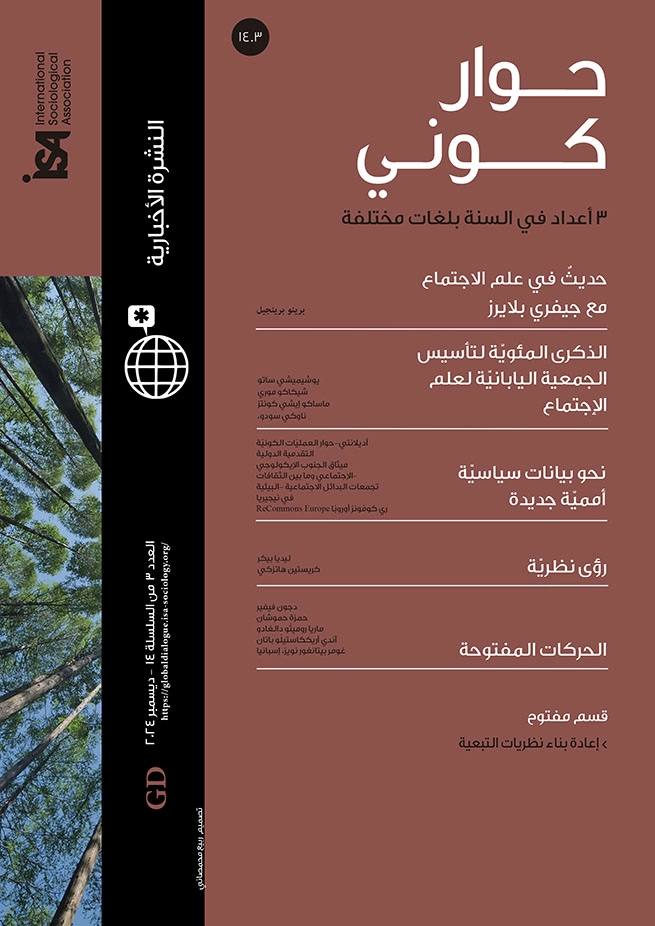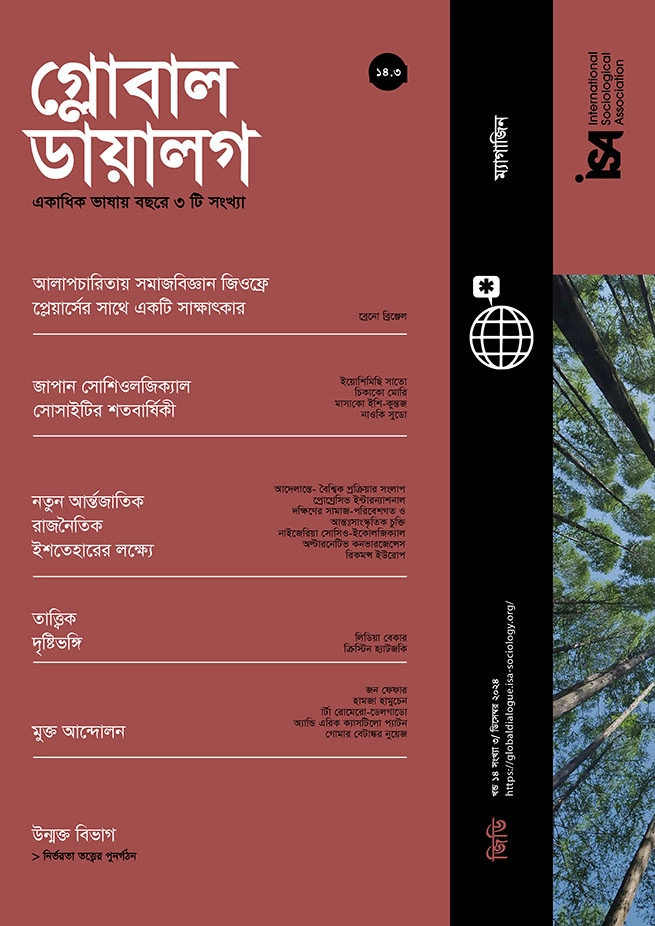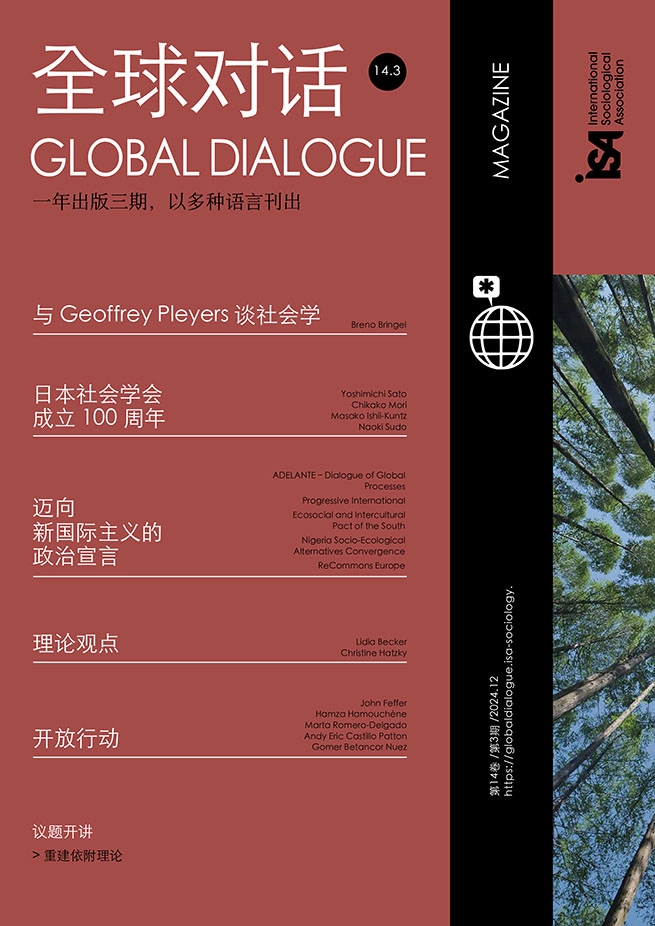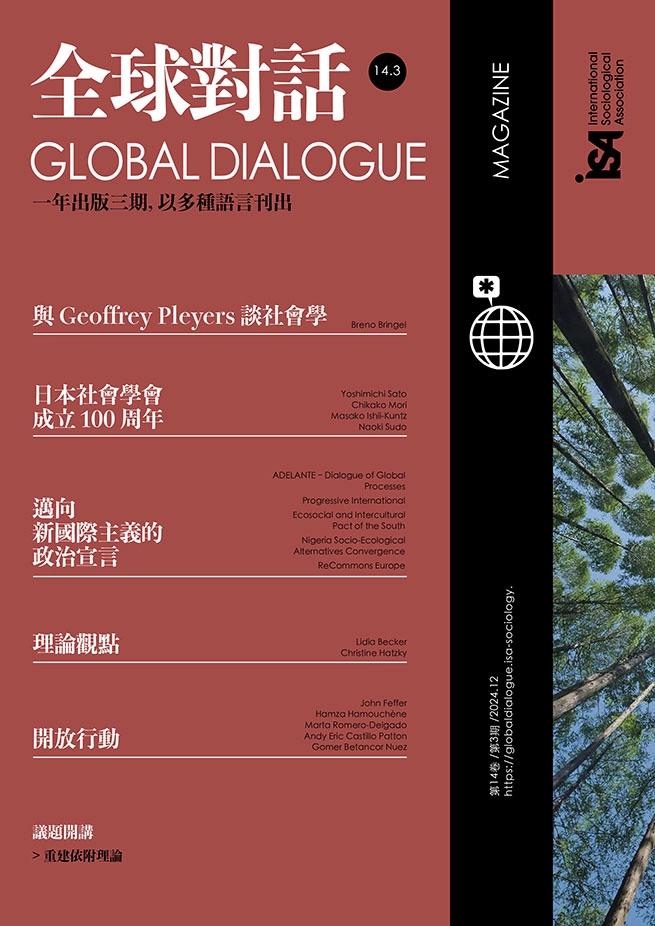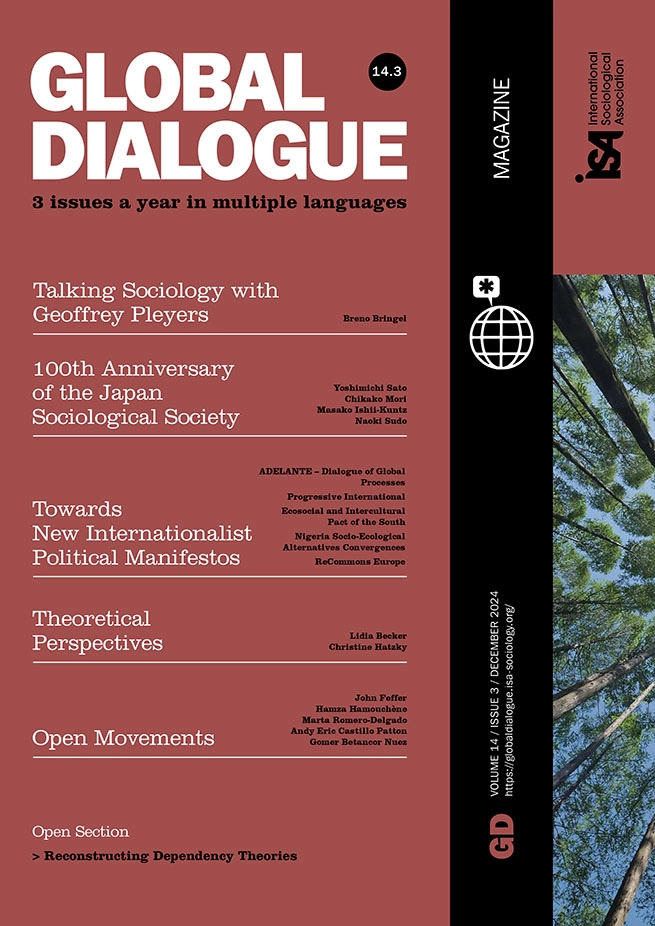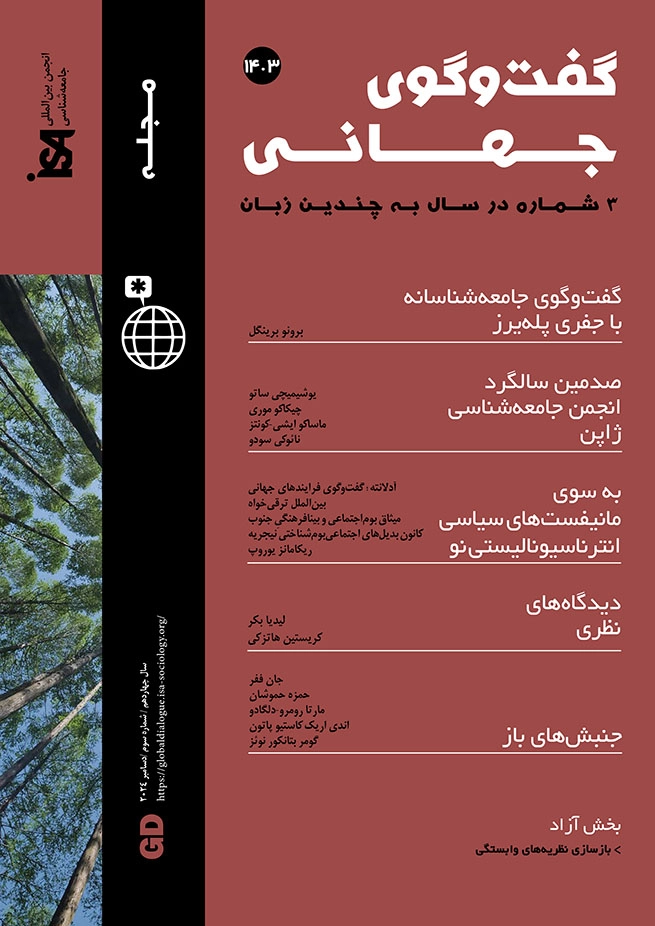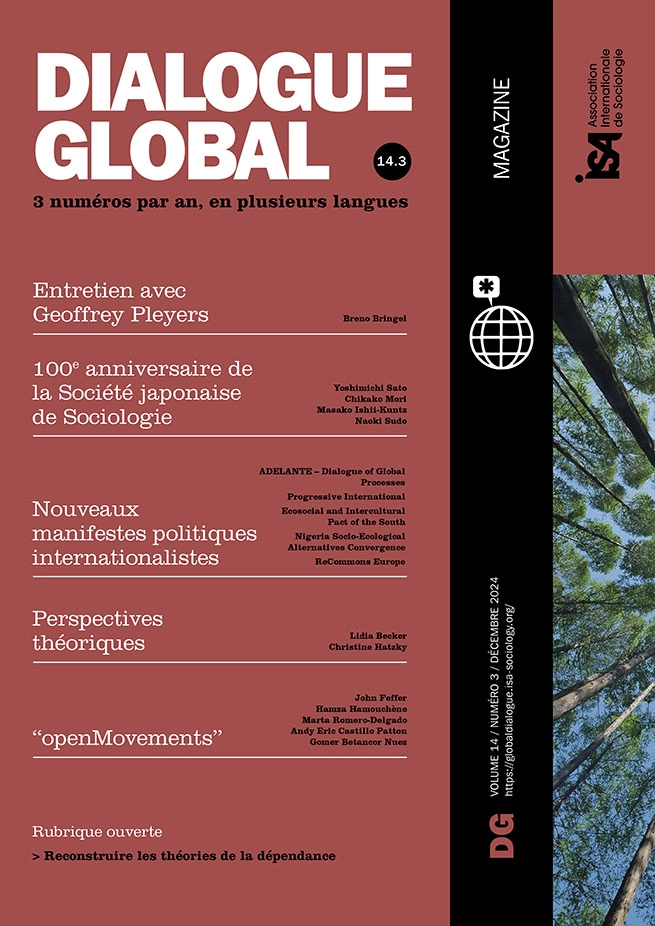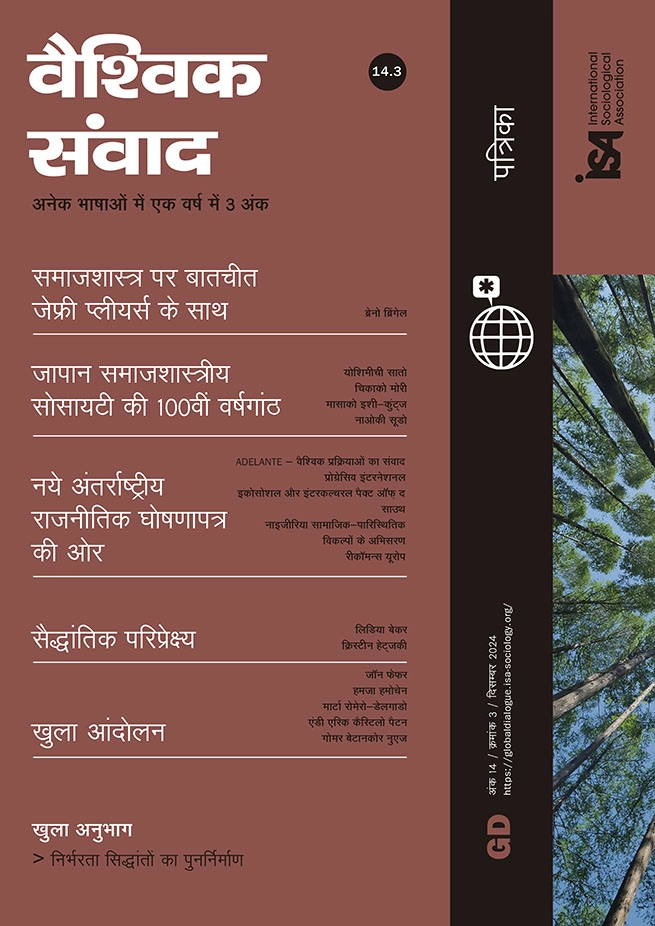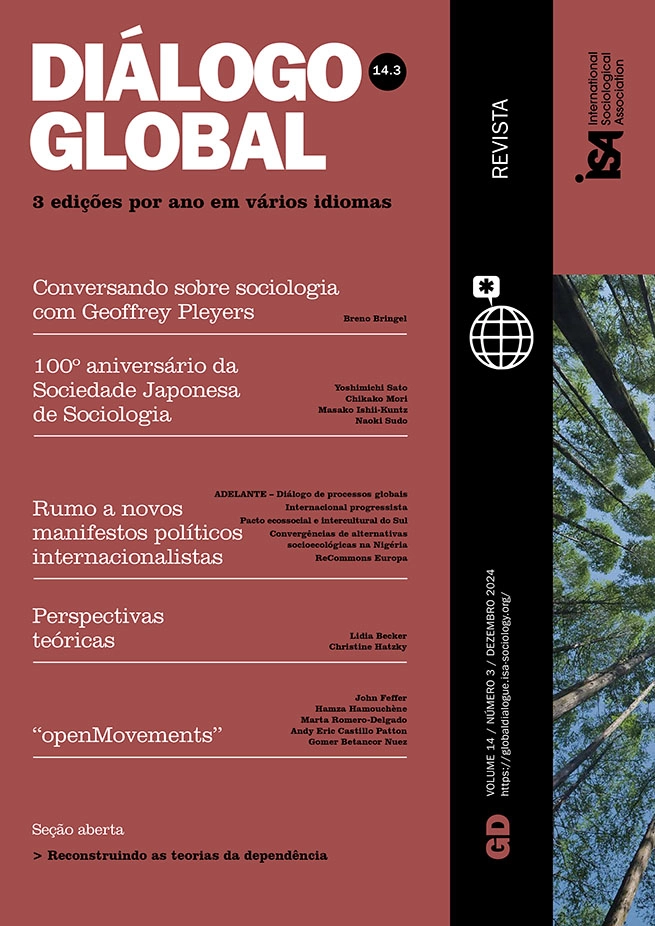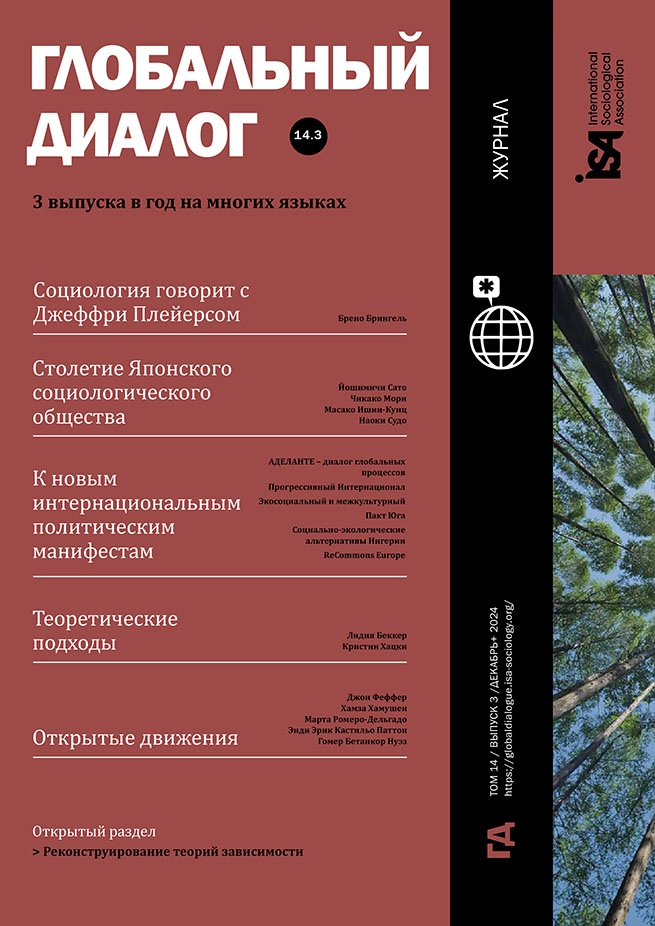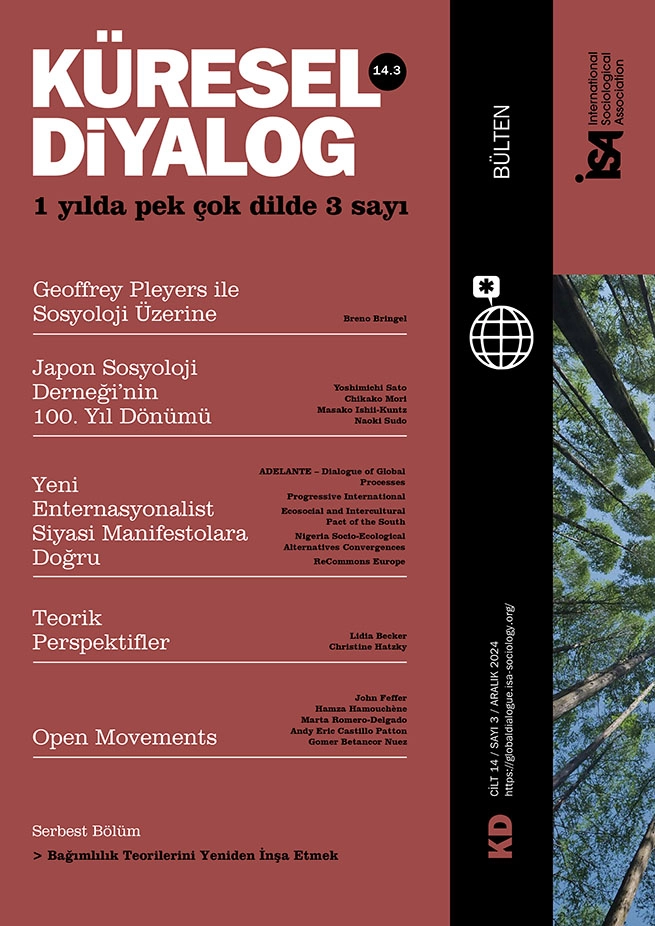Beyond Difference: Similarity in a Pluriversal World

November 15, 2024
The present is characterized by environmental catastrophes, wars, desolidarization and rapid technological progress with unforeseeable consequences. The practices of exploitation have intensified under neoliberal capitalism and accelerated the displacement and extinction of many terrestrial – human and non-human – populations. In light of these current planetary challenges, we argue for analyzing them “beyond difference” and unlocking the potential of similarity as a mediating concept for the humanities and social sciences, in accordance with the work of Anil Bhatti.
Pluriversality and posthumanism
Categories of difference, as developed in critical postcolonialism and gender studies, are useful for deconstructing inequalities and hierarchizations, but neglect the recognition of similarities – relations, analogies, associations, simultaneities, and interspaces – as a prerequisite for empathy and cohesion-building social practice. Andean Indigenous philosophies of Sumak Kawsay or Buen Vivir take up thinking via connections in the figure of pluriversality in order to overcome colonial and patriarchal practices. In a “pluriversal world,” social orders of human and non-human (legal) subjects coexist on an equal basis and the Earth is not considered a resource, but a life-giving being, where everything is connected to everything else.
The concept of the pluriverse is process-ontological in the sense of involving a common becoming of humans and nature. A similar shift in perspective is proposed by the critical posthumanism developed in the Anglo-American and European regions which emphasizes the kinship relationships between human and non-human entities instead of differentiating between them. This approach refers to decolonial and non-anthropocentric views from Latin America, Africa and Asia, but in comparison, it places greater importance on technological development for the earthly future. Linked to this is the discussion about the habitability of the planet where the “earthlings” have a chance of survival and where anthropomorphic technology, with its opportunities and dangers, plays a key role. The concept of similarity gains importance in this context because techno-scientific development renders machines more and more similar to humans and intensifies the ambivalence of humankind’s creative power.
Much ado about difference, little about similarity
There are strands of research literature that are relevant for the similarity-based analysis of the link between non-anthropocentric concepts of pluriversality and posthuman approaches. The first such strand is formed by the perspectives discussed in Latin America based on various Indigenous cosmologies (led, among others, by A. Escobar, M. de la Cadena, M. Blaser, and A. Krenak) as well as the concepts of conviviality (developed by Sergio Costa) and coexistence addressed in Latin American studies. Since antiquity, recognition of similarity has been repeatedly highlighted as a fundamental human cognitive function and as a practice that provides orientation – as imitation, mimicry, or mimesis – in philosophical and scientific-historical discussions. However, similarity has only recently emerged in debates concerning cultural theory and literary studies, so far without exhausting its epistemological potential.
Beyond these still vaguely formulated approaches, we want to make the concept of similarity fruitful for a paradigm shift in the humanities and social sciences, drawing on its fore thinkers (B. Spinoza, G. Leibniz, G. Tarde, W. Benjamin, Marcuse, and others), who form the basis for the second strand of research literature. To date, humanities and social sciences have primarily worked with categories of difference whose theoretical foundations form a third strand, namely structuralist, but especially post-structuralist, concepts (M. Foucault, J. Derrida, G. Deleuze). These difference-based perspectives were reflected in post/decolonial and modern-critical concepts (D. Chakrabarty, F. Coronil, S. Hall, R. Grosfoguel) and discussed in gender and queer studies, which together form a fourth strand of research. In a field organized along interdisciplinary lines, this fourth strand successfully developed the analysis of difference for the deconstruction of complex phenomena of inequality on a global level (G. Spivak, M. Lugones) and captured the entanglements of different dimensions of inequality under the concept of intersectionality. Work from the field of Black/women of color feminism (b. hooks, K. Crenshaw) paved the way for the awareness that the category of gender is constitutive for the understanding of ethnicity and class.
Identity constructions based on difference came under criticism from the 1990s onwards, in the course of the globalization debate, partly because of their essentialist understanding of culture, which does not allow for any spaces in between (S. Hall, H.K. Bhabha). Such identity constructions are at the core of the idea of cultural superiority of a “Western civilization” based on simplistic and arbitrary identity constructions of “self” and “other” which are taken up by fundamentalist and identitarian movements. This is why the concept of identity based on difference is questionable. Accordingly, even difference-based concepts with an anthropocentric focus have recently been pursued via non-essentialist, relational approaches.
A final strand linking to pluriversality and expanding epistemological connections
The threat to planetary life posed by climate change and the destruction of ecosystems which is now so obvious calls into question, in particular, the differentiation between human society and nature (B. Latour, P. Descola), as established in the course of the Enlightenment (rationality) and consolidated in modern sociology. The concept of similarity also lends itself here to overcoming the dichotomies of coloniality between nature and humanity/culture, and to understanding the human being merely as part of a complex network.
This is the basis for the fifth strand of research, which encompasses new materialisms (K. Barad), posthumanism (D. Haraway, R. Braidotti), affirmative biopolitics (V. Borsò) and technofeminism (J. Wajcman, F. Costa). These are open to decolonial approaches and non-Western cosmologies, which is the decisive link to pluriversal thinking. Meanwhile, African philosophies also address techno-coloniality and the complex interweaving of technology, nature, and humans; and they debate the possibilities of decolonial technologies in a pluriversal world (A. Mbembe).
What all these approaches have in common is that they reconfigure empathic relationships between the zoe, geo, techno and anthropo dimensions. Other approaches compare Asian philosophies with the findings of quantum physics and their applicability in the social sciences and humanities (K. Fierke), thus opening up multiple connections in global knowledge production. In contrast to science and technology studies, the techno-coloniality angle (R. Camarena et al.) is characterized by its historical focus and the implicit knowledge of colonial and decolonial processes based on regional expertise, as well as by the expanded understanding of “technology” which identifies, for example, literacy as a colonial technique (W. Mignolo).
The specificity of our proposal is to discuss, systematize, and develop these different strands of global epistemologies based on relational thinking from the point of view of their complementarity in order to elaborate a new non-anthropocentric conception of the fluid relations between the nature–human–technology entities.
New (old) ontologies, technology critique, and decolonial similarity
Our central point is the extent to which the perception and production of similarity can contribute to the shaping of a pluriversal world in order to understand and overcome the essential planetary risks of the current epoch, known as the Anthropocene or Capitalocene. This implies a fundamental revision of the Eurocentric, universalistic ontology as the basis of the humanities and social sciences. In our opinion, the related questions should be discussed along the following three thematic axes:
- Nature: The modern demarcation between culture and nature, subject and object, which is fundamental to Western epistemology and has been developed under colonialism, will be questioned in terms of continuities and reciprocities between human and non-human subjects. We contrast the dichotomization, which justifies the exploitation of humans and natural resources, with a relational – pluriversal – perspective, which is inherent in the inclusive ideas of micro- and macrocosms of older cultures, the philosophies of Latin America, and the ‘flat ontologies’ discussed in recent times.
- Technology: The optimization of technologies for the exploitation of exteriorized natural landscapes and groups of people was another basis of colonialism and the epitome of patriarchal rationality. The penetration of everyday life by new technologies and the fusion of humankind and technology evokes justified skepticism towards techno-coloniality – for example, through the control function of communication technologies. This, however, is countered by the hope of social design possibilities. Posthuman feminism defines the intertwining of organic life and non-organic matter, including technologies, as an assemblage, which raises the question of the concept of technology and the constitution of the subject as a decision-maker.
- Human: The focus is on a pluriversal model of society based on the deconstruction of the category of human (defined as male, heteronormative, and White). Priority is given to the creation of commonalities between groups of people in the sense of conviviality and solidarity, beyond difference and foreignness. Up for discussion is the extent to which the exploitation of otherized people and natural resources, which began in colonialism and continues in capitalism, is responsible for the social exhaustion in differences and the ecological crises of the present. Meanwhile, the risks of homogenization in historical and contemporary contexts, for example through the exclusion of diversity in authoritarian regimes, must not be neglected.
The innovative potential of our concept lies in the interdisciplinary linking of the process-ontological concept of pluriversality with posthuman approaches based on the ordering practice of similarity. We bring these together in order to develop a new conception of the relationships between the entities of nature–human–technology in the sense of a continuum. On the one hand, pluriversal and posthuman thinking share criticism of post-structuralist and post/decolonial research approaches based on “difference” and “alterity” when addressing Western conceptualizations of modernity, its universalism, and the promises associated with it. On the other hand, it should be taken into consideration that the modern world was divided into hierarchical and essentialist dichotomies (self/other, White/Black, man/woman, civilized/wild, subject/object, mind/body, culture/nature, difference/similarity), following the logic of modernity–rationality–coloniality.
Accordingly, differentiation was declared the paradigm of knowledge organization par excellence, while similarity and imitation were rejected in Western epistemology as “unscientific” because they were considered “primitive,” “magical,” “close to nature,” and “pre-modern.” Our approach, in contrast, integrates the relational concept of similarity into the decolonial paradigm, expands the pluriversal awareness of the world to include a critique of technology, and transcends difference-based knowledge production.
Lidia Becker, Leibniz University Hannover, Germany <becker@romanistik.phil.uni-hannover.de>
Christine Hatzky, Leibniz University Hannover, Germany <christine.hatzky@hist.uni-hannover.de>

